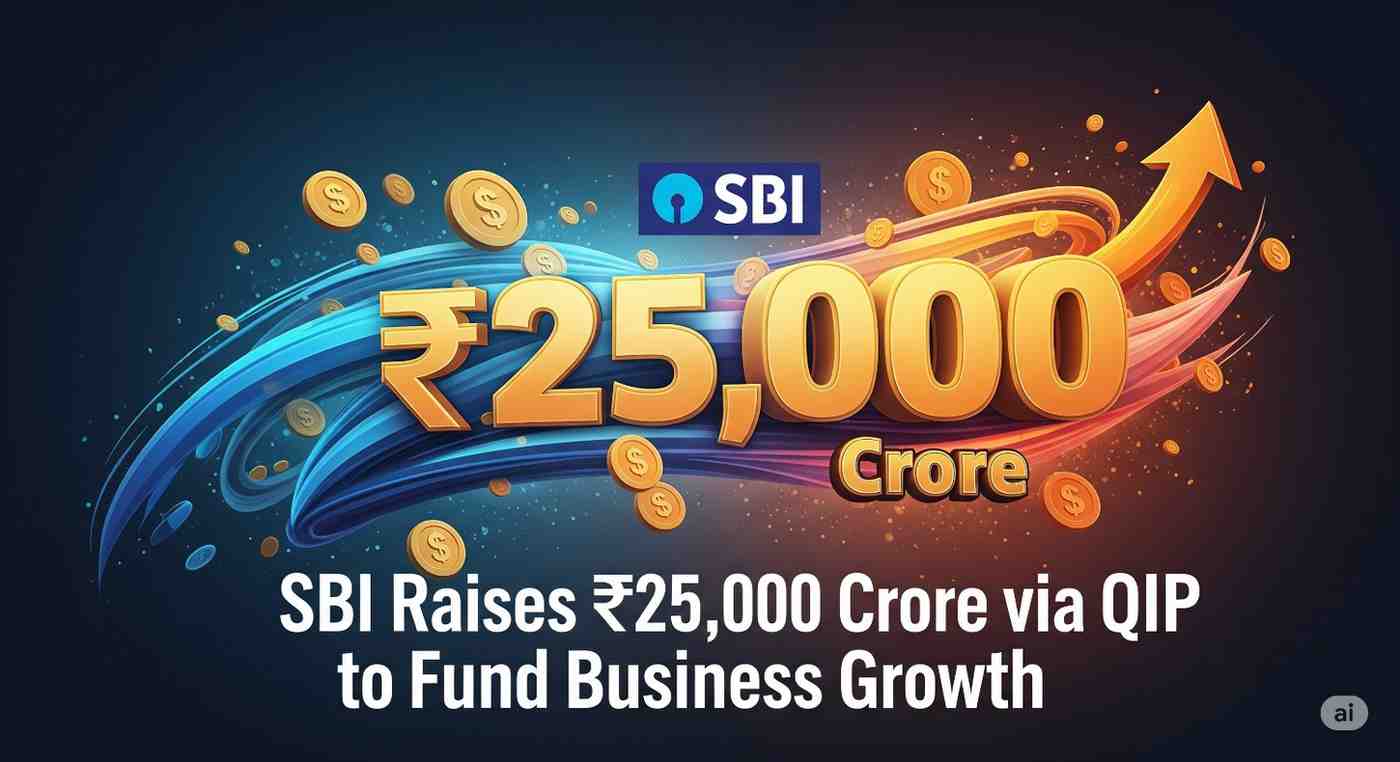-
Algos
-
Stocks
-
Trading
-
Strategies & Arbitrages
-
Mutual Funds

Have you seen the news? State Bank of India (SBI), the country's largest bank, just made a huge financial move. They have successfully raised a whopping ₹25,000 crore (that is about $3 billion!) through a special share sale.
So, what is this all about, why did they do it, and what does it mean for the bank's future? Let’s break it down in simple terms.
Instead of selling new shares to the general public, SBI used a faster method called a Qualified Institutional Placement (QIP).
Think of it as a fast-track sale exclusively for big, professional investors like mutual funds and insurance companies. This process is quicker and involves less paperwork than a public offering.
The bank announced on Monday that the issue was a success and that they had sold over 30 crore new equity shares at a price of ₹817 per share.
The main reason for this massive fundraising is simple: to fuel future growth.
This cash injection acts like a powerful booster for the bank. It will allow them to lend more money to both businesses and individuals, expand their services, and strengthen their overall financial position for the years to come.
The plan to raise these funds was first approved by SBI's central board in May and was later cleared by its shareholders in June.
One of the most significant investors in this share sale was the Life Insurance Corporation of India (LIC).
LIC, another state-owned financial giant, bought a substantial number of the new shares. This purchase increased their total holding in SBI from 9.21 percent to 9.49 percent. When one of the country's largest investors increases its stake, it is seen as a strong vote of confidence in the bank's future.
While SBI is a massive bank, a fundraising of this scale is not a frequent event. The last time the bank raised a large amount through a QIP was back in 2017-18, when it raised ₹15,000 crore. This latest move is their biggest in years and signals ambitious plans ahead.
This ₹25,000 crore is just one part of the bank's larger fundraising strategy.
The bank's board has also given its approval to raise up to another ₹20,000 crore through the sale of additional tier 1 and tier 2 bonds during the financial year.
This entire fundraising effort comes on the back of a very strong financial performance. For the 2024-25 financial year, SBI reported a 16 percent increase in its standalone profit, reaching an impressive ₹70,901 crore. The bank also declared a healthy dividend of ₹15.90 per share for its investors.
In short, SBI's massive fundraising is a sign of its strength and a clear signal of its ambitions for future growth. It shows that major investors are very optimistic about the future of India's largest bank.
For more market analysis and insights into the financial markets and global economy, you can follow us at TheAIBull.com.

NSDL's upcoming IPO is priced at a steep 22% discount to its grey market value. Find out why the company chose a lower price and what it means for you.

SEBI has issued a draft circular proposing significant changes to the categorisation of mutual fund schemes. Find out what this means for investors.

Discover why the Nifty fell below the key 25,000 mark and what investors are watching next as heavyweights like RIL and HDFC Bank prepare to report earnings.

Discover why weak Q1 earnings, FII outflows, and trade deal concerns are putting pressure on the Indian stock market.

SEBI is concerned about high volumes in short-term F&O contracts. Learn why the regulator may increase contract tenures and what it means for retail traders.

Bitcoin has crossed $123,000, but this rally is different. Learn how record ETF inflows and major U.S. regulatory developments are driving the current bull run.
